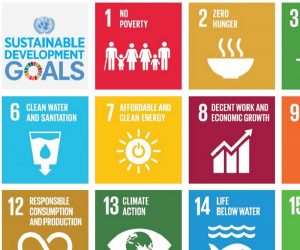Like many Americans today, I am still processing how life in our country will be different with a President Trump. It remains to be seen how he will govern and how his priorities expressed in the campaign will manifest themselves in new national policy.
In my professional capacity as a teacher educator and curriculum writer, I’m thinking that it is now more important than ever before to promote global citizenship among young people. The rhetoric that won the day on November 8 was isolationist, nativist and regressive. Yet, our children are growing up in an interconnected world, where understanding life outside U.S. borders is a fundamental requirement to moving humanity forward toward shared goals of peace, prosperity and a sustainable global environment.
We know that children and teens have internalized this election’s messages as never before, and worry how the outcome will affect their future. Trump has espoused a roll-back of environmental regulations that protect our air and water. He has vowed to rescind our commitments to the all-important Paris Agreement that would reduce carbon emissions and help to stave off the worst effects of climate change. He campaigned on a message to close our doors to the neediest members of our global family – refugees fleeing war and persecution. He has described women in such disparaging terms as to make girls question their self-worth and status. Yes, the role of teachers and counselors got a little more difficult this week.
As educators, we can do our part to empower young people with factual information, thoughtful discussion and tolerant spaces to voice their anxieties and hopes. Working toward a better world for the whole global family starts with education. When students understand the science behind climate change, they will know it’s not a hoax perpetrated by the Chinese. When they study the Constitution, they will be learning about the tenets of our democratic system and civil liberties that ward against autocratic rule. When they examine U.S. history, they will consider the contribution of immigrants in American society. When they sit in world geography class, they will learn about different cultures, indicators of human development, why people migrate, and why universal access to education and opportunities is so important to economic progress and the fulfillment of human rights.
I invite you to use this site and its many teaching tools to advance global citizenship among your students of all ages. Go to our Find a Lesson page to discover dozens of downloadable K-12 teaching activities and student readings. If you teach middle or high school students, encourage them to submit videos to our World of 7 Billion Student Video Contest. This year’s topics – Ocean health, Urbanization and Climate Change – give students opportunities to let their voices (and moving images) be seen and heard by hundreds of thousands of people. In this small way, they can be influencers and start shaping the future they want for people and the planet.




